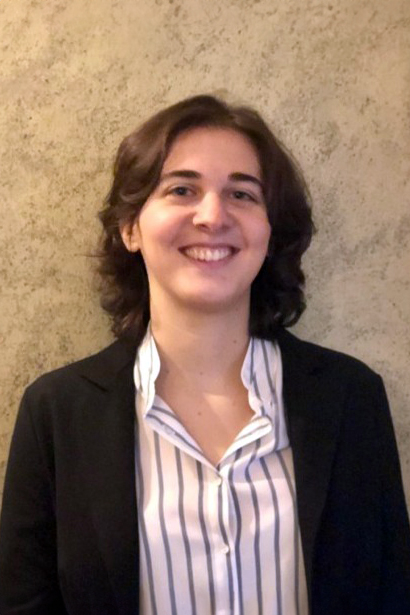
ORCID ID: 0000-0001-5005-9316
Curriculum: Clinical Neuroscience
Tutor: Professor Nadia Bolognini
Workplace: Department of Psychology, University of Milano-Bicocca
Abroad period: Klinik für Psychiatrie, Psychotherapie und Psychosomatik, RWTH Aachen University, Germany (from April to November 2023); MD Anderson Cancer Center, Houston, Texas, USA (July 2024)
I obtained my B.Sc. in Psychological Sciences in 2018 at the University of Milano-Bicocca, where I had the opportunity to deepen my knowledge in psychobiology through a thesis investigating social touch and the role of tactile C fibers in face evaluation.
In 2020, I obtained my M.Sc. in Clinical Psychology and Neuropsychology at the University of Milano-Bicocca, discussing a thesis investigating the feasibility of a newly developed forensic neuropsychological tool designed for testamentary capacity assessment, the Testamentary Capacity Assessment Tool (TCAT).
I completed my postgraduate internship at Fondazione IRCCS Ca’ Granda Ospedale Maggiore Policlinico, where I received extensive training in the field of clinical neuropsychology through the neuropsychological assessment and diagnosis of patients with brain injury and/or neurodegenerative diseases. I also had the opportunity to continue my collaboration with the University of Milano-Bicocca, where I was taught the use of eye-tracking and transcranial direct current stimulation (tDCS). I was also involved in a project concerning the modulation of motor resonance through paired associative stimulation using transcranial magnetic stimulation (TMS), where I became familiar with this neuromodulation technique.
Currently, I am pursuing a Ph.D. in Clinical Neuroscience at the School of Medicine and Surgery of the University of Milano-Bicocca. Under the supervision of Professor Nadia Bolognini, my research project aims to investigate the efficacy of non-invasive brain stimulation (specifically, tDCS) in the regulation of aggressive behavior, also taking into account sex differences and the influence of personal disposition. As a secondary research project, I am working with Professor Nadia Bolognini and Professor Cristina Scarpazza (from the University of Padova) on a study on emotion recognition in violent offenders at Casa Circondariale di Monza.
PhD research project
Modulating interhemispheric prefrontal dynamics of aggressive behavior
A growing body of evidence has shown the key role of the dorsolateral prefrontal cortex (dlPFC) in aggressive behavior, along with the chance of modulating it by means of non-invasive brain stimulation. However, it is still unclear the functional interplay between the two cerebral hemispheres in the regulation of aggressive behavior. To address this issue, we aim to assess the effect of bi-hemispheric prefrontal transcranial direct current stimulation (tDCS) in healthy adults with a cross-over, double-blind, sham-controlled design. Half of the participants will receive the anodal stimulation over the right dlPFC and the cathodal stimulation over the left dlPFC, while the other half will receive the anodal stimulation over the left dlPFC and the cathodal stimulation over the right dlPFC. During tDCS, participants will undergo the Point Subtraction Aggression Paradigm (PSAP), a validated instrument for the measurement of aggressive behavior. All participants will also be given self-report questionnaires measuring individual levels of aggression, impulsivity, and empathy to test whether these constructs are associated with the neuromodulation of aggressive responses at the PSAP. In a second part of the project, we will examine whether bi-hemispheric tDCS over the dlPFC influences reactive and proactive aggressive behavior differentially using two innovative paradigms developed from the modified Taylor Aggression Paradigm (mTAP), which measure reactive (rTAP) and proactive (pTAP) aggression separately. Overall, this project aims to provide a new insight into the brain mechanisms that regulate aggressiveness, both in its reactive and proactive qualities, their sex differences, and their dependence on dispositional aggressive tendencies.